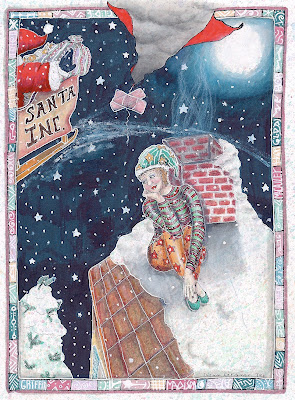I was profoundly grateful the day John Lennon died.
As I stood in the center of my own hell absorbing the news from the scrambled and faint signal of our battered, borrowed television, my immediate shock and despair were quickly displaced by a clean wave of relief.
It was not that I celebrated his death. I was as stunned and devastated as anyone else. It was a gratitude for the promise of a slight respite from the abusive fists of my husband of four months and of the terrifying isolation housed body and regret in the small home we had rented deep in the verdant woods of a remote Vermont enclave.
This news would find my new husband disturbed and distracted.
This news would turn his attention away from his now routine need to flesh out his demons without marring his own skin.
This bitter fist of calamitous news would loosen the hate balled tightly in the center of his angry hands and give me a moment to think, to recover, to justify.
John Lennon was my favorite Beatle. Like me, he was a Libra. Like me, he first set out to become a visual artist. Like me, he employed an often acerbic wit to trim the edges off his innate vulnerability; and like me at the time, there was not a drug or mode of cerebral transport he would not try if it fostered an escape from his barbed encounters with reality.
I wondered in the confusion of the moment and without benefit of the complete backstory of his death, if perhaps it was his particular and public version of chasing
happy that led to his violent demise; just as I knew with certainty that it was my own need to escape the grim destiny of
ordinary which led to what could now potentially be mine.
John Lennon and I were both artists; both of us in mad flight to a plane of existence that was far away and well above humanity's declivitous stride towards the indifference it seemed hell-bent to reach. I watched the approach for decades and mourned the collective thrashing of society as it heaved in the death throes of compassion.
I recognized anger and experienced the consequence of unacknowledged familial violence and neglect in fierce blows against skin and bone.
My skin.
My bones.
This was the price I now paid for seeking escape in the folly of bohemia and the marital promise of a fierce young man who was anything but
ordinary.
Much like John Lennon, I quested
peace and the tenuous distinction of
unique; and like him, what I ultimately found was the brutality of envy and the dangerous estate of the scapegoat.
His end came at the hands of a deranged assassin whose transference exited through the bullet of a small handgun.
Mine would likely come shrouded in the silence of the surrounding woods at the grip of a man whose self-loathing could only be purged through the fisted arc of his meaty hands as they bludgeoned the face and body of someone whose will and promise he believed exceeded his own.
John Lennon once said, "
A dream you dream alone is only a dream. A dream you dream together is a reality."
Being an impulsive and reckless altruist, I took his words at face value not bothering to first learn that a dream is no match for unyielding bitterness and that without dual wills and much effort it would not heal or erase the consequential brokenness of childhood neglect nor harvest compassion from within the deep roots of misogyny.
I was a lone dreamer.
Then John Lennon was shot and killed, and I became a fighter.
I had given peace a chance long enough. I was not going to risk dying for the wealth of a dream I alone held.
"Life is what happens while you are busy making other plans." This was perhaps his most well-known and oft-quoted saying. I doubt he knew what end life held in store for him when he uttered those words. I doubt anyone did.
But this was not
my life, and I was not going to let the barbed edges of my husband's chronic dsyfunction control and consume my dream. God damned plans were going to be made.
The random and frequent battering continued, but after December 8th, 1980, it was met with strong resistance. Of course, this precipitated only greater abuse until blood was being drawn on both sides.
By the middle of February I had managed to mastermind our move away from the protective solitude of the mountains to the public and familiar territory of a small Long Island community where neighbors lingered in yards and on porches long after dusk. We stayed in the summer home my parents owned in a town I had known since childhood. I was visible and would be heard there.
By the First of May and at my urging, my husband was gone; seeking employment out of state while I readily agreed it was best that I remained behind until he was settled. Happily, I doled over the keys to my car, although he still left with my favorite sweatshirt and all of my cash; both taken without my consent.
The following day I found a job managing a cookie shop, as well as an attorney willing to accept payments over time, and I filed divorce proceedings.
Later that evening I learned on the news of the proposed plans by Yoko Ono, the widow of Lennon, and some of his many fans to designate a quiet section of Central Park as a commemorative garden to the man and to his music.
They would call it
Strawberry Fields.
I listened, and I still believed.
That night I slept.
And I dreamt.
And I continued to live.
"You may say I'm a dreamer. But I'm not the only one."
And I am not.
Thank you, John Lennon.






